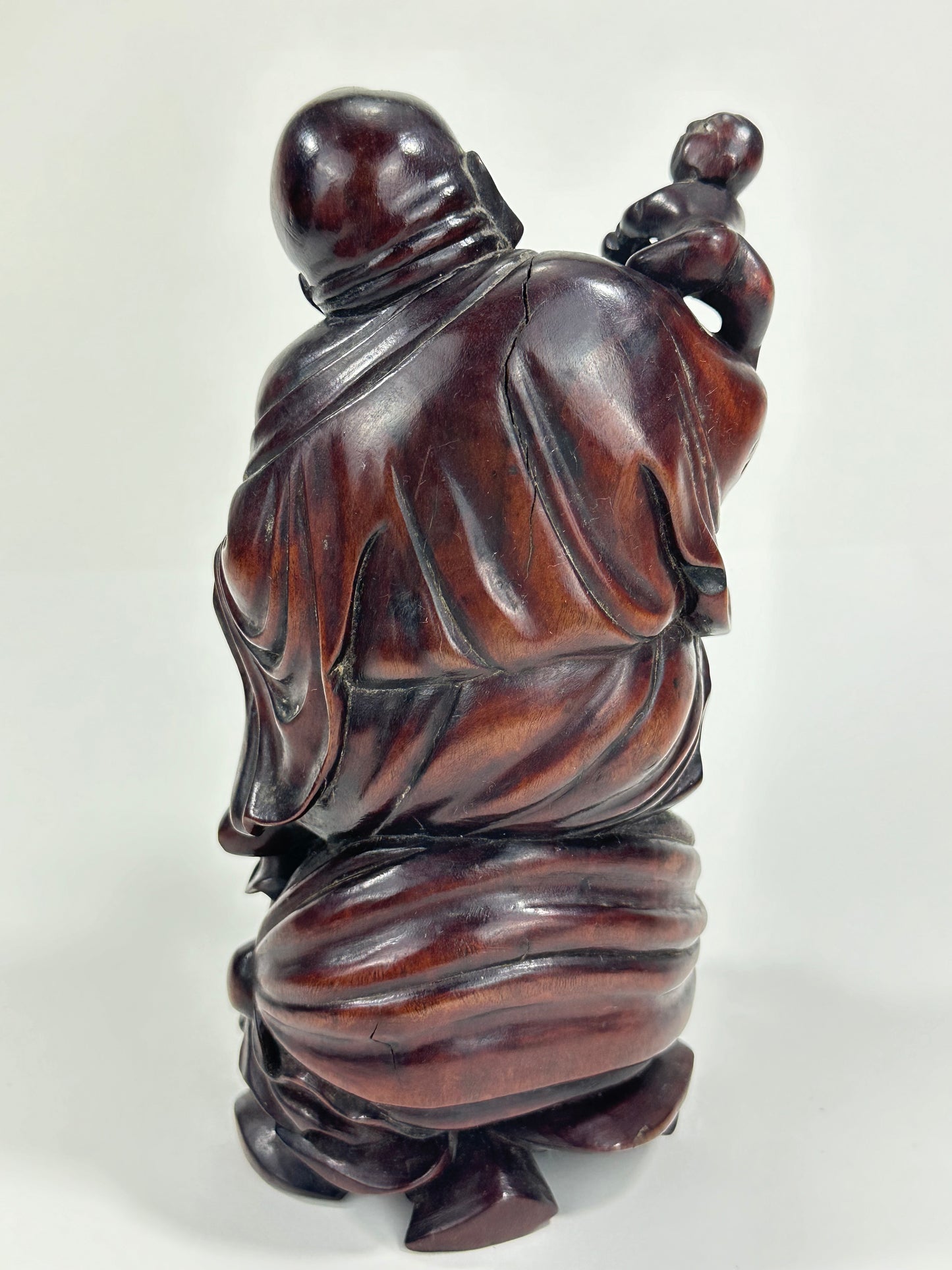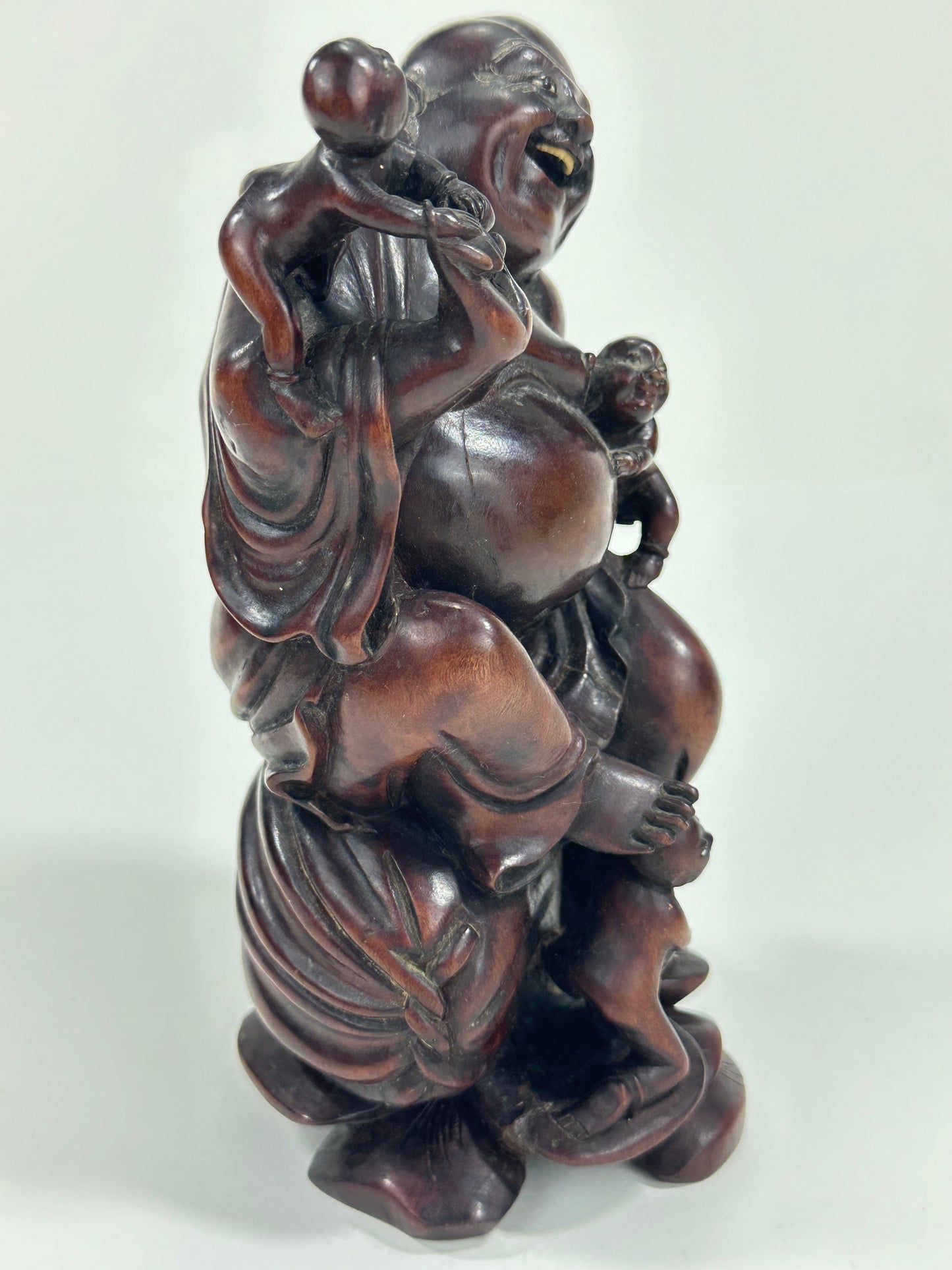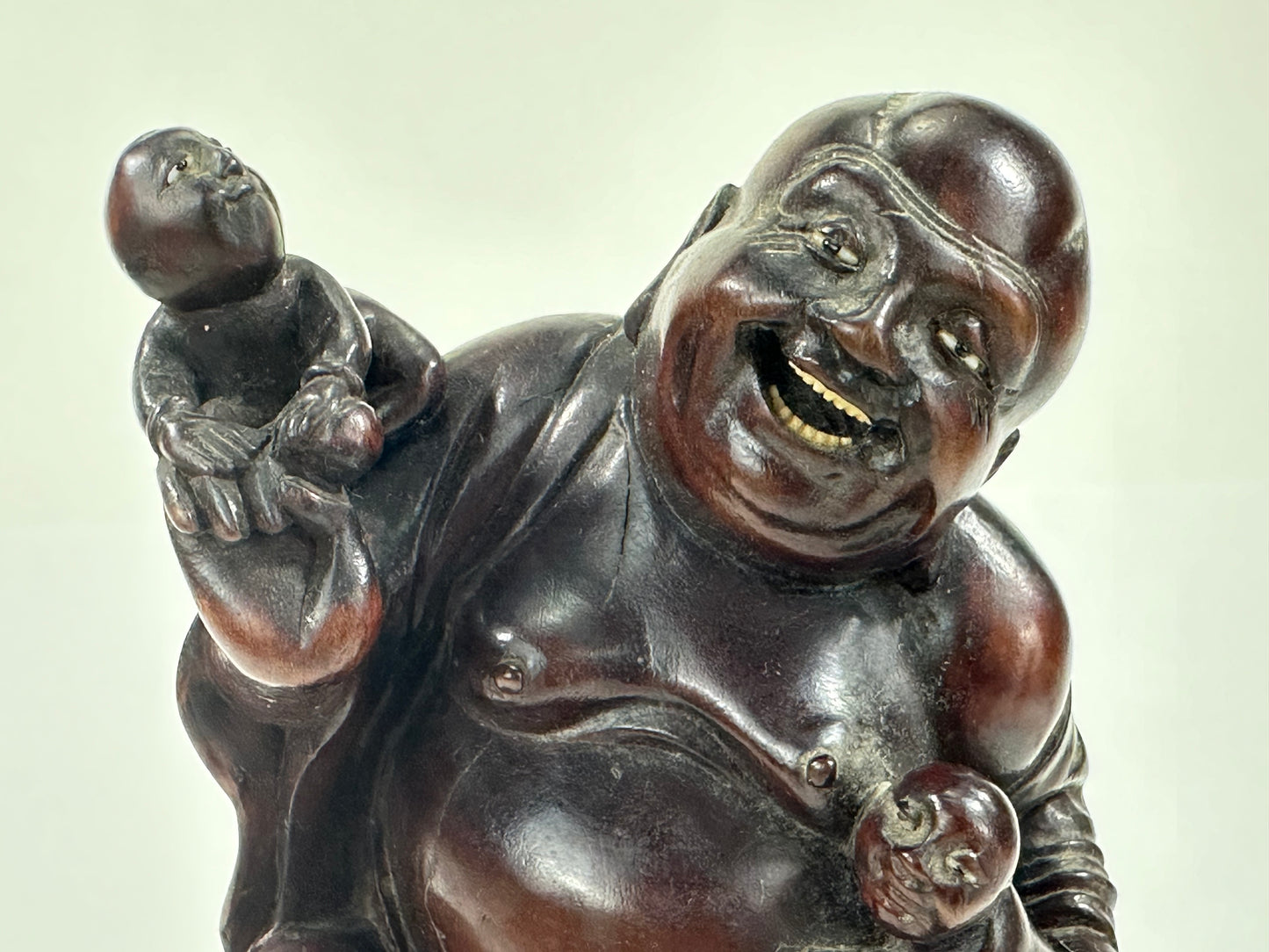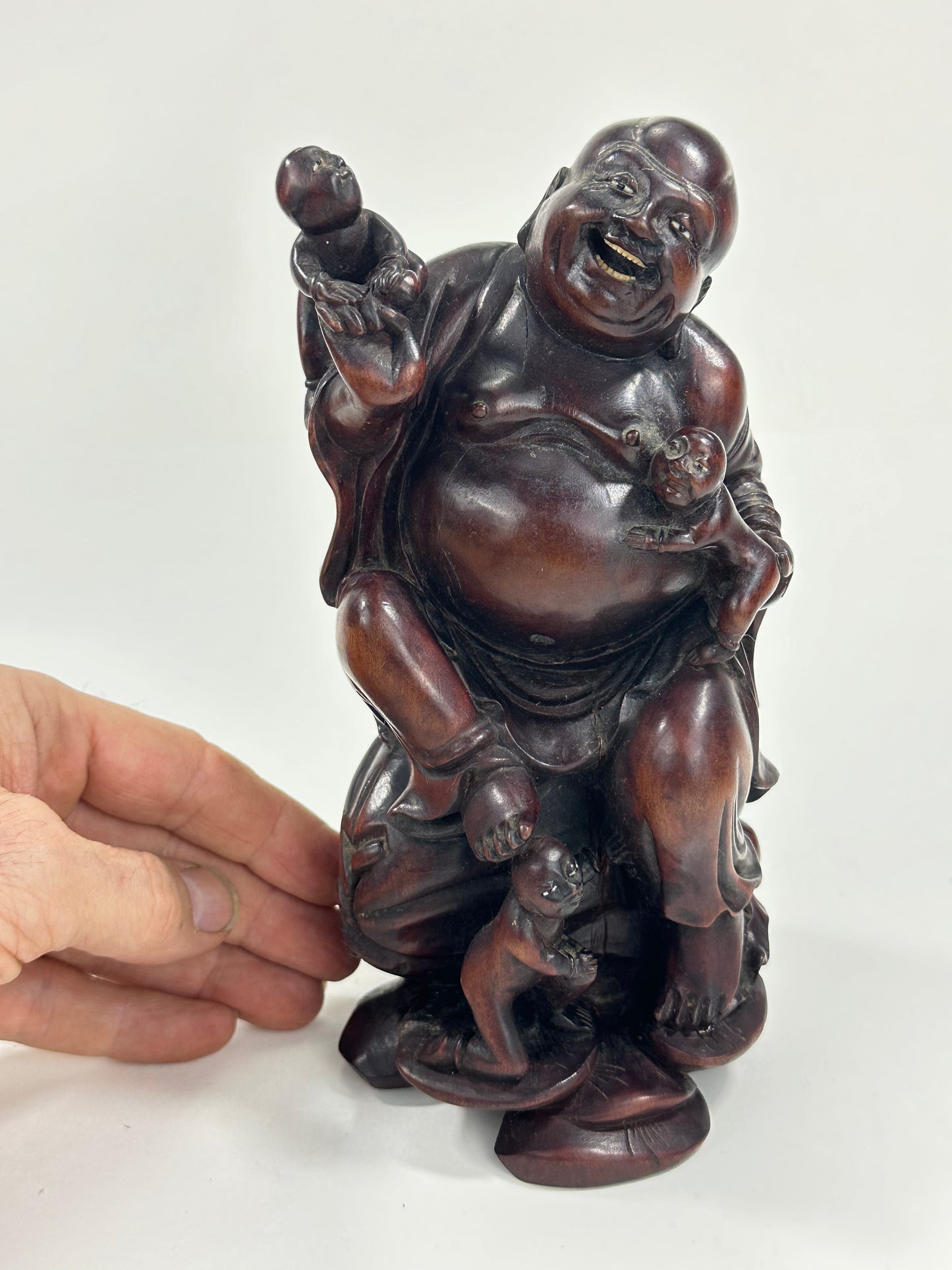Antique Japanese Carved Wooden Statue of Hotei Lucky God 8”
Antique Japanese Carved Wooden Statue of Hotei Lucky God 8”
Couldn't load pickup availability
Hotei 布袋 carved in wood and depicted in his usual jovial state of happiness and contentment.
We received this statue from a collector who had been acquiring them for two generations. It has been cared for and kept dust free by its caretakers for over 50 years. As such it is in remarkably good condition.
Height = 8”
Width = 3.5”
Depth = 3.5”
Weight = 3lbs 9oz
Hotei, one of the Seven Lucky Gods in Japanese folklore, is often identified with the god of contentment and happiness. Characterized by his cheerful, smiling visage and large, protruding belly, Hotei is depicted as a wandering, benevolent monk who carries a large cloth sack (from which he gets his name, often translated as "cloth bag"). This sack is filled with endless treasures, candies for children, food, and is said to hold the fortunes of those who believe in him. He is often seen surrounded by children, to whom he gives gifts, symbolizing generosity and good fortune.
Hotei's origins trace back to Chinese folklore, where he is thought to be a representation of Budai, a Chinese Chan (Zen) monk who lived during the Liang Dynasty (502–557) and later became a folkloric figure. The depiction of Hotei as a fat, laughing monk has made him synonymous with the "Laughing Buddha" in the West. In Japan, he was absorbed into the Shichifukujin from the 17th century during the Edo period, where his image proliferated as a symbol of abundance, good health, and a contented life.
Hotei is beloved not only for his jovial nature but also for his embodiment of the Zen principle that suggests enlightenment can be achieved through an understanding of the mundane and everyday satisfaction. His presence in art and decor is ubiquitous across Japan, often found in temples, restaurants, and homes, serving as a reminder of joy, generosity, and the virtues of a carefree approach to life.














